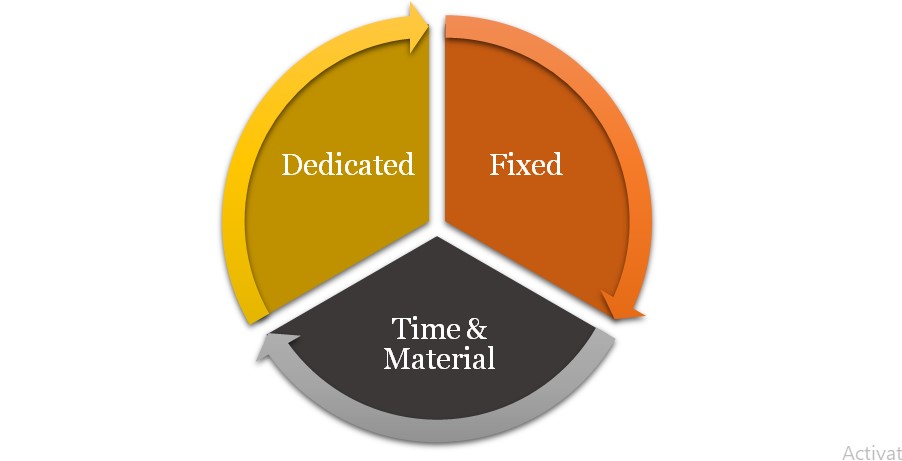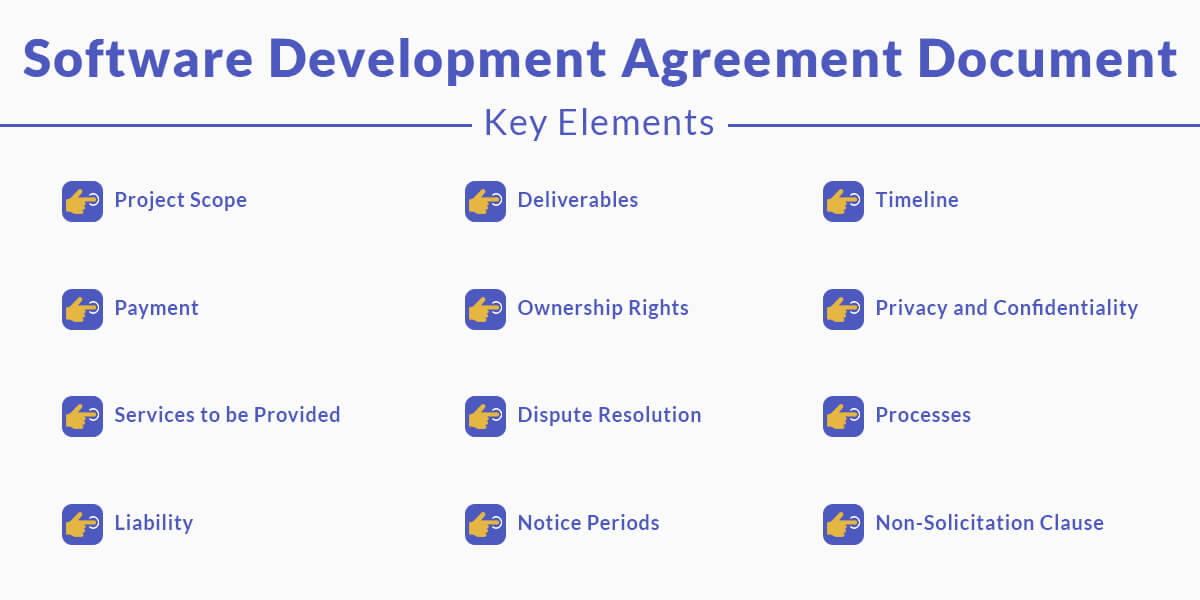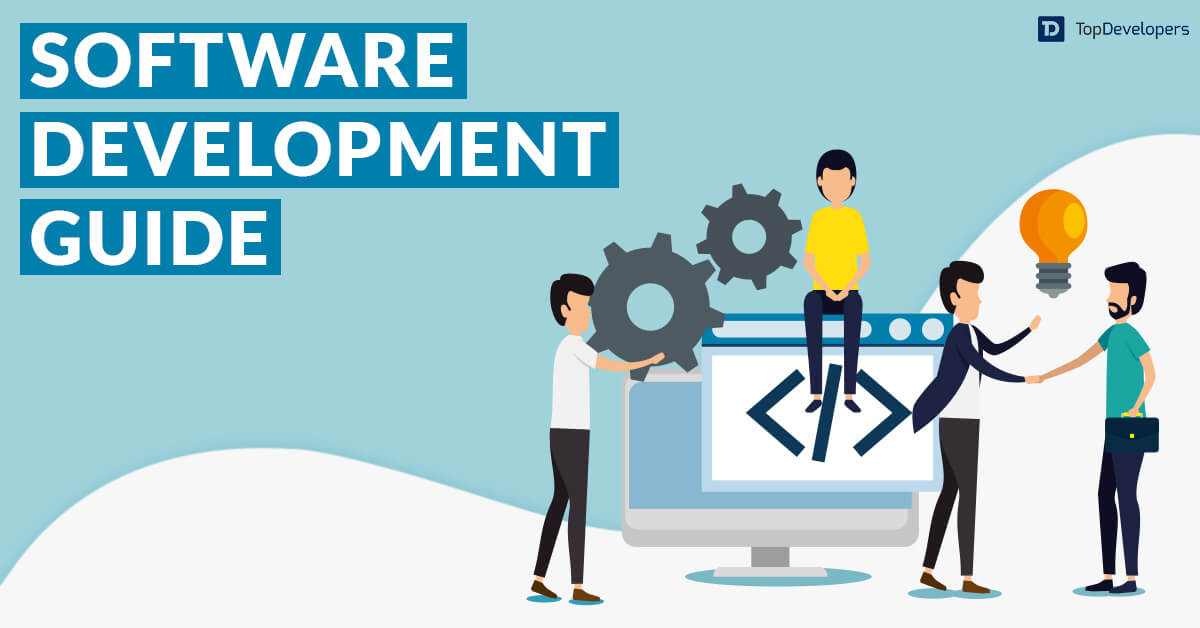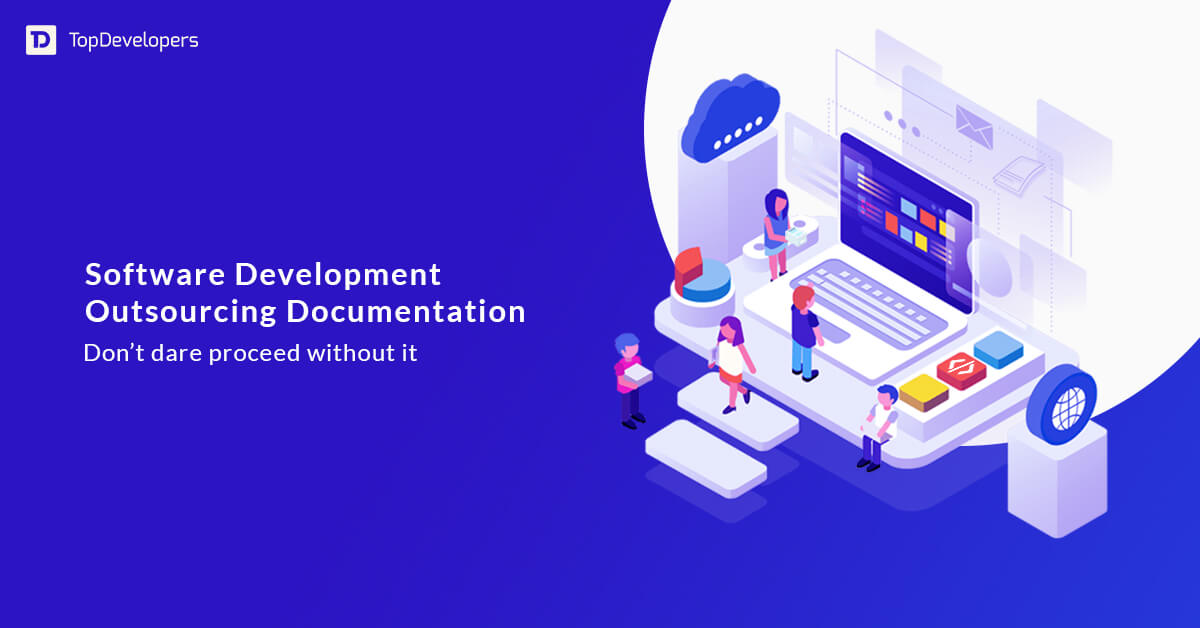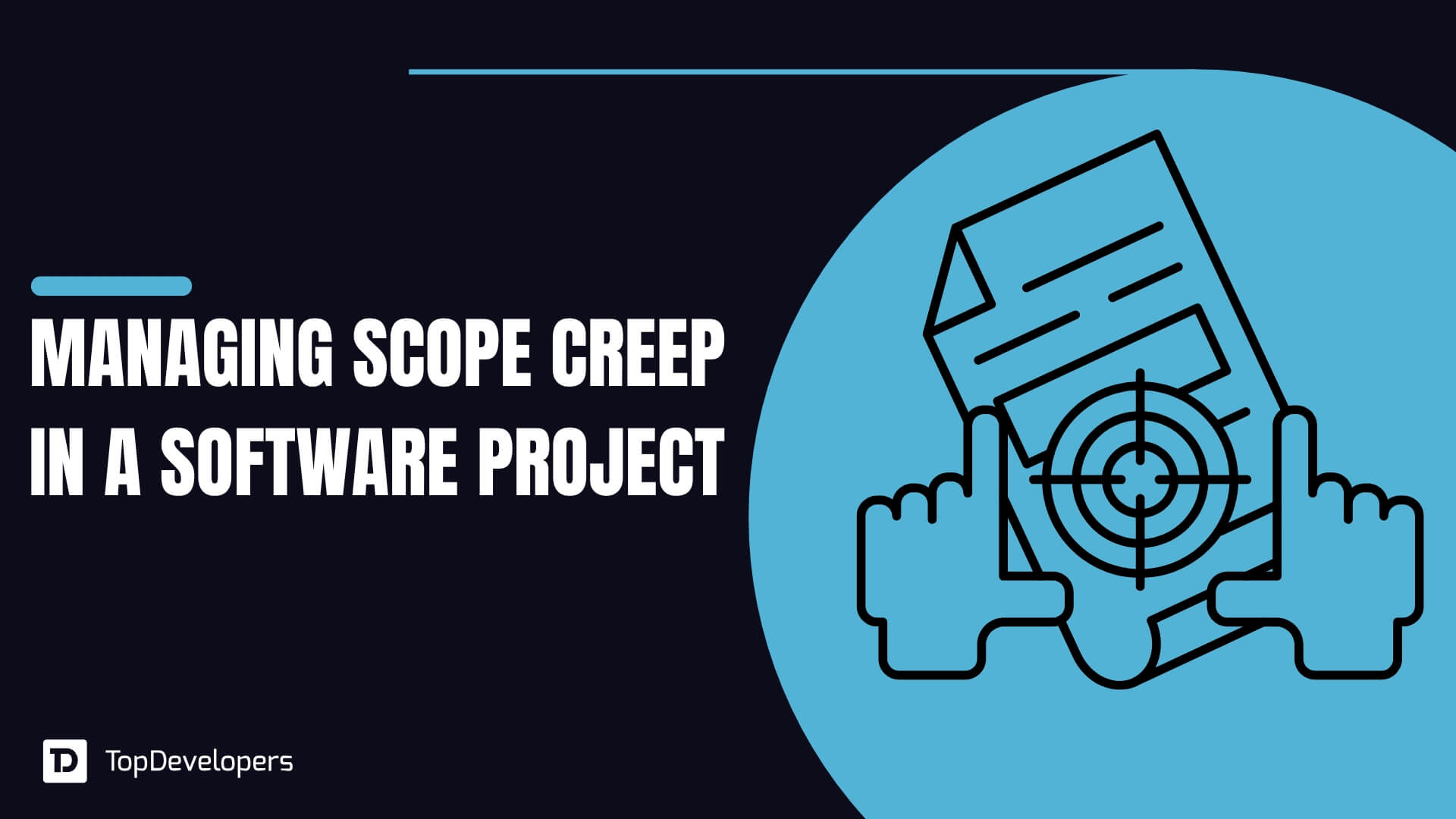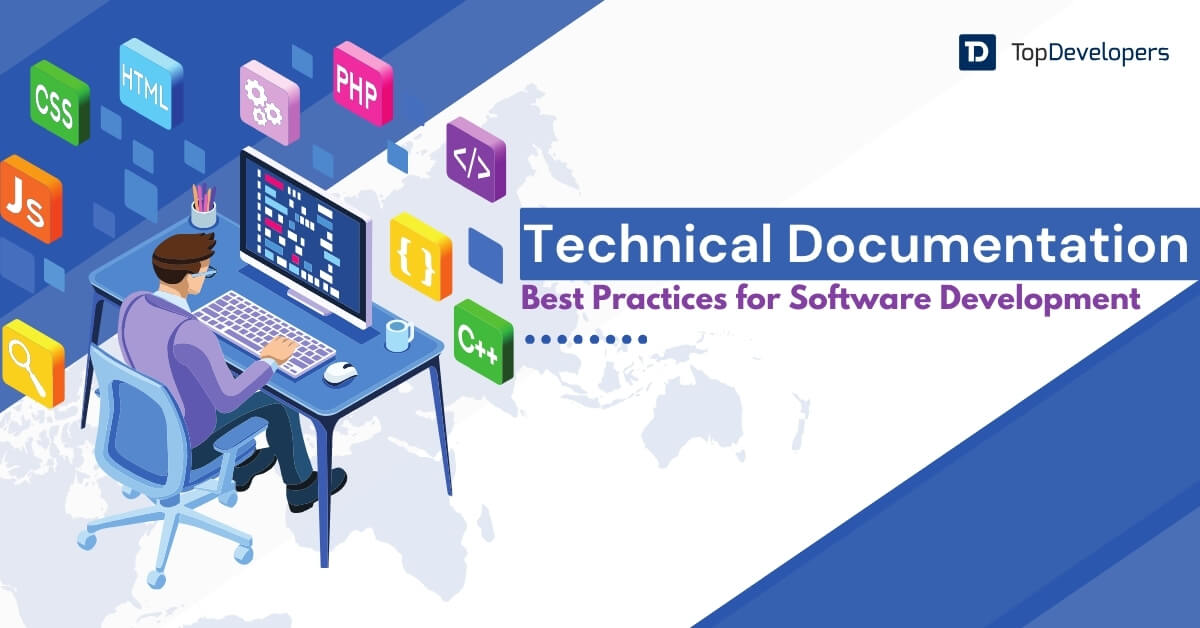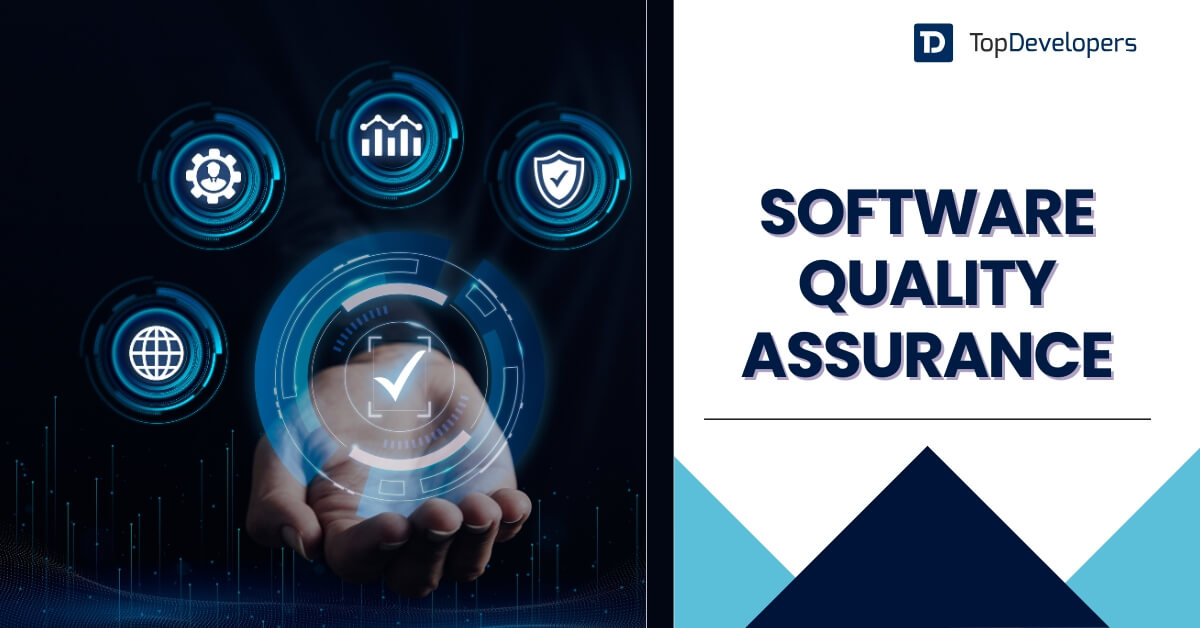
The recent stats by the research giant Statista quote that the revenue from total software development is likely to show an annual growth rate (CAGR 2023-2028) of 5.42% which means it would have a market volume of $858 billion by 2028. There is no company or business that can thrive in the competitive market without automatizing its internal and external operations.
Since so much money and effort are put into finding top software development companies to hire the best resources, it is important for enterprises to make sure that their projects don’t go into the wrong hands; furthermore, it is also suggested that the documentation is in place in order to avoid any hassle or unwanted consequences.
Table of Contents
- What is a Software Development Contract?
- Why is a Software Development Agreement important?
- Types of Custom Software Development Agreements/Contracts for Hiring
- Key Elements to Include in Your Software Development Agreement Documents
- Make sure you are not missing anything
- Frequently Ask Questions About Software Development Agreement
What is a Software Development Contract?
A software development contract is a legal document that binds a software development company and a client with certain duties about a software project. It can also be extended to dedicated software developers and the client as well. This document mentions what the software will do, the time it’ll take to develop, how much it will cost, and who will own the final product. Furthermore, it may include the hiring models, milestones for software project completion and payments. Such legal binding helps both parties to avoid misunderstandings and disputes about the software project.
Why is a Software Development Agreement important?
As just stated, a software development services agreement builds a legal bond between a software developer and a client with all the details such as the scope, and terms and conditions of the entire project.
It is important to have a software development agreement for several reasons:
- It clarifies the expectations and responsibilities of both parties, such as the deliverables, deadlines, payment methods, ownership rights, warranties, and liabilities.
- It protects the intellectual property rights of the software development company and the client, such as the source code, documentation, trademarks, and patents.
- It reduces the risk of disputes and litigation by providing a clear and enforceable framework for resolving any issues that may arise during or after the software project development.
- It ensures compliance with relevant laws and regulations, such as data protection, privacy, security, and taxation.
Types of Custom Software Development Agreements/Contracts for Hiring
There are different types of agreements for software development that suit the different needs and preferences of both end users. You can hire software developers under three main types of software development contracts:
Fixed price contracts
These software development contracts have a fixed amount of money that has to be paid for the entire project, irrespective of the total time it takes and the effort put in by the developer. The advantage of a fixed-price contract is that it assures certainty and clarity for both end parties. Some software development agreement also mentions an incentive for the developer to finish the project on time and within budget.
However, there is a concern that it requires a clear and detailed specification of the project requirements upfront, and it does not allow for much flexibility or changes in the scope during the software development life cycle process. Any changes or additions will require a new contract or a change order with additional fees.
Time and materials contracts
This type of software development agreement specifies an hourly or daily charge that the client pays for the work of software developers or development teams. This is counted based on the real time & resources utilized for the project. The benefit of this type of agreement is that it offers more flexibility and adaptability to fluctuating demands or unanticipated changes during the software development process.
On the other hand, there is a concern that this type of software agreement does not provide a clear estimate of the total cost or duration of the project; hence, there could be a risk of overcharging or underdelivering by the software development company or developer.
Dedicated team contracts
A dedicated team software development agreement mentions a monthly or annual fee that the client pays to a dedicated team of developers who shall work dedicatedly on their project. The benefit of this type of contract is that it offers an optimum level of collaboration and communication between the client and the dedicated software development team. Also, it is possible to have access to a pool of trained and skilled software developers who can handle multifaceted and long-term projects.
However, this software development agreement could be more expensive than other types of contracts, and it may require a sincere commitment and faith from both parties.
Key Elements to Include in Your Software Development Agreement Documents
An ideal software development services agreement shall outline the following facets:
- Project Scope
- Deliverables
- Timeline
- Payment
- Ownership Rights
- Privacy and Confidentiality
- Dispute Resolution
- Liability
- Notice Periods
- Non-Solicitation Clause
Project scope and deliverables:
This section of the software development contract mentions what developers shall do for the client, what the anticipated results are, and how they will be gauged. The project scope should be specific, realistic, and measurable. It should include details like the total number of features along with their functions plus design, quality standards, testing, documentation, and support.
The deliverables are the tangible products or services that the software development team will provide to the client at certain milestones or upon completion of the project. The deliverables should be clearly defined and aligned with the project scope and objectives.
How to write Request for Proposal (RFP) for Outsourcing Software Development?
Timeline and schedule:
In this part of the software development agreement, it is mentioned when the project will begin and finish, how long each milestone or task shall take, and what are the deadlines for every deliverable. The timeline should be realistic and achievable, and take into account factors such as complexity, dependencies, risks, and contingencies. The scheduling should also include a communication plan that outlines how often and through what channels the software development team member and the client will communicate.
Payment terms and schedule:
Software development contract’s payment terms determine how much the client shall pay the software development company or remote developers that they have hired for their work and how they will pay them. Plus, it is also important to mention when they will pay them and how. The payment terms are made fair and transparent as they reflect value and professionalism.
The payment schedule should be linked to the delivery of milestones or deliverables, and include provisions for deposits, retainers, invoices, receipts, late fees, penalties, discounts, refunds, and taxes.
Ownership rights and intellectual property agreements:
This part has information about who owns what in relation to the software product. It includes source code, login ids and passwords, designs, databases, trademarks or logos, copyrights, patents, and trademarks.
The ownership rights are made clear and unambiguous to guard the interests and assets of both parties. The intellectual property agreements in software development specify how each party uses and modifies any component and/or licenses. The Intellectual Property (IP) of the other party mentions all types of limitations and obligations as well.
Confidentiality agreements:
This section of the software development agreement obliges both parties to keep certain information confidential during and after the project, such as trade secrets, business plans, customer data, or personal information. The confidentiality agreements should identify what information is confidential, how it will be protected, who can access it, and for how long.
The confidentiality agreements of software development should also include exceptions for disclosure required by law or consent to by both parties.
Dispute resolution policies:
In this policy, the information on how both parties will handle any disputes or conflicts that may arise during or after the software development project, such as disagreements over scope, quality, payment, or ownership. The dispute resolution policies of software contracts mention a clear and efficient process for resolving disputes, such as negotiation, mediation, arbitration, or litigation; additionally, they also specify what law and jurisdiction will apply to the agreement and the dispute.
Liability and Warranties:
This section determines who is responsible for what in relation to the software project, such as errors, defects, delays, damages, or losses. It should define the extent and limitations of each party’s liability and involve sections for amends, restriction of liability, and exclusion of substantial damages.
The warranties section of the software product development agreement should state what guarantees each party makes about their work or products, such as functionality, performance, quality, or compliance; plus, it may state what remedies are available in case of a breach of warranty.
Notice periods:
Here, how much time each party has to give notice to the other party before taking certain actions such as terminating the software development agreement, changing the scope, or requesting a modification is mentioned. The notice periods should be reasonable and sufficient for both parties to prepare and respond to the notice.
Non-solicitation clause:
This software development contract section prohibits both parties from soliciting or hiring the other party’s employees, contractors, or customers during and after the software project development, without the other party’s consent. The non-solicitation clause should protect both parties’ interests and relationships and include details such as duration, scope, and penalties for violation.
Make sure you are not missing anything
Every software product development should have legal agreements as they are essential for ensuring the quality, scope, and ownership of software projects. They protect the rights and interests of both the software development company and the client and help avoid disputes and misunderstandings.
Software development agreements must be clear, comprehensive, and legally enforceable. Plus, they must include all the relevant aspects of the project. By having a well-written software development contract, both parties can benefit from a smooth and successful software development process.
Frequently Ask Questions About Software Development Agreement
What are the main software development agreement types?
Software contracts are agreements between software providers and customers that define the rights and obligations of each party regarding the use of the software. There are different types of software contracts, depending on the nature and scope of the software project. Broadly, you have Time and Materials, Fixed/Bid, and Dedicated agreements.
What should be included in the software development contract?
You must include at least the following clauses and conditions in your software development agreement.
- A description of the software, its features, functions, specifications, and deliverables
- A statement of the rights and obligations of each party regarding the ownership, licensing, use, maintenance, support, warranty, and liability of the software
- A schedule of milestones, deadlines, payments, and penalties for non-performance or breach of contract
- A process for managing changes, disputes, and termination of the contract
Can I make sure that my software development agreement is legally binding?
To make sure that a software development agreement is legally binding, both parties should:
- Review and understand all the terms and conditions of the contract
- Negotiate and agree on any modifications or amendments to the contract
- Sign and date the contract in writing or electronically
- Keep a copy of the software development contract for future reference
 Avantika Shergil
| Jun 26, 2023
Avantika Shergil
| Jun 26, 2023
Avantika Shergil is a technology enthusiast and thought leader with deep expertise in software development and web technologies. With over 8 years of experience analyzing and evaluating cutting-edge digital solutions, Avantika has a knack for demystifying complex tech trends. Her insights into modern programming frameworks, system architecture, and web innovation have empowered businesses to make informed decisions in the ever-evolving tech landscape. Avantika is passionate about bridging the gap between technology and business strategy, helping businesses build customized software and website, and understand about different tools to leverage effectively for their ventures. Explore her work for a unique perspective on the future of digital innovation.
